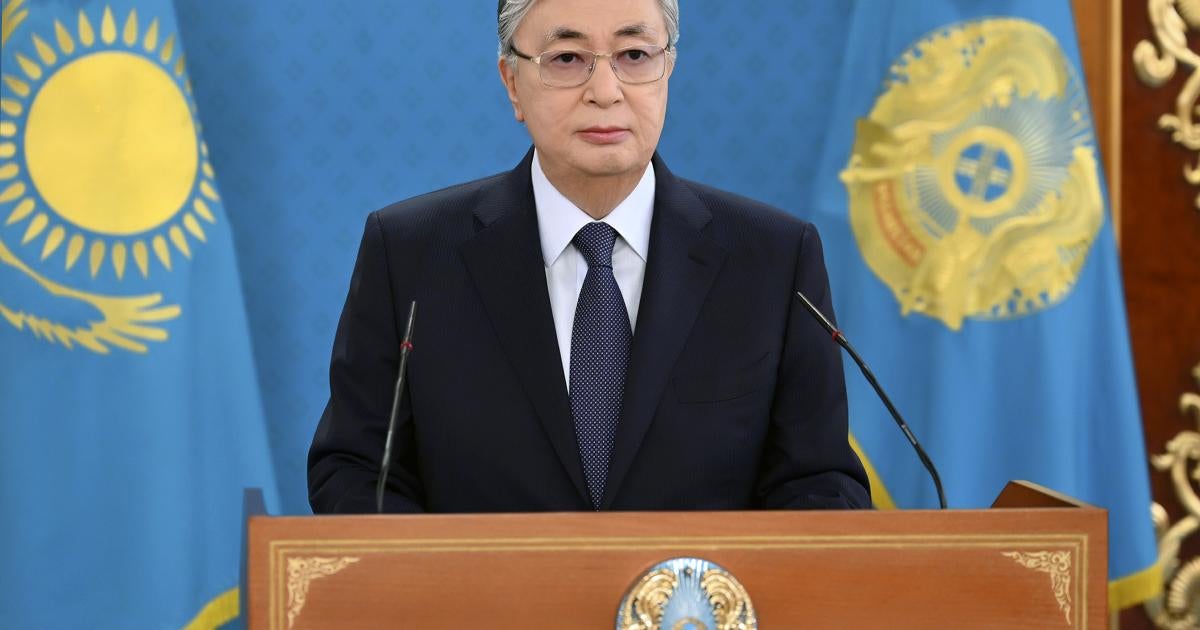Kazakhstan: Boost Rights Protection in Constitution Reform

(Berlin, May 19, 2022) – Kazakhstan should strengthen the parts of its constitutional reforms focused on plans for a human rights commissioner and for a Constitutional Court to reinforce human rights protections, Human Rights Watch said today. Kazakhstan has scheduled a national referendum on amendments to the constitution for June 5, 2022. Human Rights Watch is concerned that the time frame for the referendum does not allow for public consultation and debate about the proposals, nor for consideration of changes to strengthen key human rights elements.
The referendum is also being held against the backdrop of concerns over grave human rights violations committed during January events in which over 200 people died, and recent detentions of political activists. “Kazakhstan should show it is committed to human rights improvements by strengthening some of the constitutional proposals,” said Hugh Williamson, Europe and Central Asia director at Human Rights Watch. “The government should also allow the time needed to open the constitutional reforms to public consultation and debate and to consider amendments before the final proposals are put to a referendum.” On March 16, President Kassym-Jomart Tokaev delivered a speech, “New Kazakhstan: The Path of Renewal and Modernization,” that signaled the constitutional changes. A government working group published 56 proposed changes to the constitution on April 25. With the national referendum scheduled for June 5, Human Rights Watch is not aware of any arrangements for broad public consultation on the proposed amendments to allow consideration of opinions from numerous stakeholders in both rural and urban areas.
The government should undertake broad consultation and consider further changes before the proposals are put to a referendum. If this is not possible before June 5, it should postpone the vote until such consultation has taken place. Among the proposed constitutional changes that could improve human rights protections in Kazakhstan are amendments to strengthen the status of the human rights commissioner and to establish a Constitutional Court. Proposed article 83-1 of the constitution enshrines the status and mandate of the high commissioner for human rights, in line with December 2021 recommendations by the Venice Commission, an expert legal body of the Council of Europe.
The Venice Commission provided an opinion on the “draft law on the Commissioner for Human Rights of the Republic of Kazakhstan,” in response to a request from the government.
The law was adopted in December 2021. However, the procedure for electing and dismissing the commissioner is not included in article 83-1, and the Venice Commission recommended that it should be specified. Article 83-1 does set out immunity for the commissioner for official acts during their term. However the Venice Principles, the “Principles on the Protection and Promotion of the Ombudsman Institution” adopted by the Venice Commission, provide that “the functional immunity shall apply also after the Ombudsman, the deputies or the decision-making staff-member leave the Institution.” The current immunity provision should be extended to include deputies and other decision-making staff in the office and should make clear that functional immunity continues beyond their terms in office. The establishment of a Constitutional Court with powers of constitutional review can serve as an important check on the executive and enrich human rights protections in Kazakhstan, Human Rights Watch said.
The independence of the court, criteria for appointments, and access to the court are key elements of an effective Constitutional Court. However, the proposed system for appointing judges raises concerns about their potential independence, as under the proposal, the president will appoint four judges and the parliament six judges.
The United Nations special rapporteur on the independence of judges and lawyers, in its 2009 report to the UN Human Rights Council, recommended that to safeguard the independence of the judiciary, judicial appointments should be made by an independent body that has a plural and balanced composition and is protected from politicization. Article 71 of the proposed constitution should be revised to reflect those standards, Human Rights Watch said. Although the authorities have pledged to create a more open political system, 11 political activists were detained on May 7 simply for exercising their right to peaceful assembly in the center of Almaty to call for the release of a prominent opposition figure, Zhanbolat Mamay. Four of the activists were given a warning, three were fined, while four sentenced to detention ranging from 15 to 20 days.
They were found guilty of violating “the legislation of the Republic of Kazakhstan on the procedure for organizing and holding peaceful assemblies” (article 488 of the Code of Administrative Offenses). Human Rights Watch has repeatedly highlighted that Kazakhstan’s law on public assemblies falls far short of international standards and should be revised.
The Kazakhstan government has also failed to hold to account those responsible for serious human rights violations during the violence and unrest in January, when 200 people were killed and hundreds of people reportedly tortured during a series of protests.
The government should immediately open an independent investigation, that includes international and national experts. “A ‘New Kazakhstan’ is impossible without respect for freedoms of expression and peaceful assembly, and accountability for serious human rights violations,” Williamson said. “Any constitutional changes should follow public participation and debate, and include measures to strengthen institutions that can help to ensure that everyone's rights are guaranteed.” For more information, please contact: In Berlin, Hugh Williamson (English, German): +49-172-282-0535 (mobile); or williaa@hrw.org. Twitter: @HughAWilliamson .
Read the full article at the original website
References:
- https://www.hrw.org/europe/central-asia/kazakhstan
- https://www.hrw.org/news/2022/01/26/kazakhstan-killings-excessive-use-force-almaty
- https://www.hrw.org/about/people/hugh-williamson
- https://www.akorda.kz/ru/poslanie-glavy-gosudarstva-kasym-zhomarta-tokaeva-narodu-kazahstana-1623953
- https://www.gov.kz/memleket/entities/ksrk/press/news/details/361766?fbclid=IwAR3n-kRos5fjZ7jB9rJg7_yftbVz0OwgZBBbcbx6-ehZDuCavCeVRxdB1vQ&lang=ru
- https://www.venice.coe.int/webforms/documents/default.aspx?pdffile=CDL-AD(2021)049-e
- https://www.venice.coe.int/webforms/documents/default.aspx?pdffile=CDL-AD(2019)005-e
- https://www2.ohchr.org/english/bodies/hrcouncil/docs/11session/A.HRC.11.41_en.pdf
- https://www.hrw.org/news/2022/03/25/kazakhstan-authorities-should-drop-charges-release-opposition-activist
- https://www.hrw.org/news/2020/05/28/kazakhstans-reformed-protest-law-hardly-improvement
- https://www.hrw.org/news/2022/03/18/new-kazakhstan-needs-independent-inquiry-january-events
